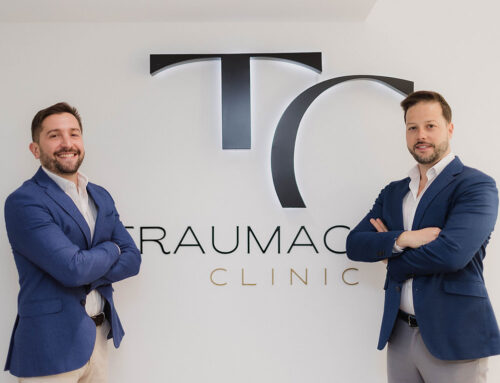An investigation by the Ombudsman into the administration by the Health Service Executive of schemes that fund necessary medical treatment in the EU/EEA or UK
(Under Section 4 of the Ombudsman Act 1980, as amended) – April 2023
Cross Border Directive scheme (CBD)
Recommendations in relation to Qualifying Conditions
Finding 1: Provision of information for those in receipt of EU/EEA state pensions
Some people who complained to my Office were refused reimbursement for the cost of their treatment abroad as they were in receipt of a State benefit from another EU/EEA country. It is clear that the legislation surrounding patients in receipt of State benefits from another EU/EEA country is complex. Both my Office and the HSE have examined the legislation on the issue and have both felt the need to seek further guidance from the European Commission to ensure we properly understood it.
Faced with that level of complex legislation it is both unrealistic and contrary to fair and sound administration to expect that patients would be able to navigate this issue by themselves. The HSE is the National Contact Point for Ireland and under the EU legislation has a responsibility to provide information to patients. It is my belief that the HSE is not fulfilling its duty in relation to this issue.
- Recommendation 1 – Provision of information for those in receipt of EU/EEA state pensions
The HSE should examine its communications on this issue and, by the end of Quarter 3 of 2023, should amend both its website and the Cross Border Directive scheme application form to highlight the complexity of the legislation, the possible effect being in receipt of EU/EEA state benefits may have on a patient, and who in the HSE they may contact to discuss the matter.
Finding 2: Application of a first charge
In the context of the CBD scheme, a first charge relates to an amount of money that has been reimbursed to an applicant which the HSE later sought to recoup. When, following engagement with my Office the HSE agreed not to recoup that money, the HSE instead decided to apply that amount as a charge which would be applied if the patient sought to apply for a further reimbursement in the future.
The information available to patients regarding EU/EEA pensions and the effect it may have on an application is in my opinion insufficient. These patients applied for reimbursement in good faith. The application was approved and paid, and the patients moved on with their lives post-treatment. I am not satisfied that the decision to implement a first charge, or the process followed by the HSE (which was in the complete absence of a corporate policy around those decisions), was fair and reasonable. I do not believe that the HSE should be applying a first charge against patients with UK pensions who applied for and received a reimbursement under the Cross Border Directive scheme.
- Recommendation 2 – Application of a first charge
The HSE should reverse its decision to apply a first charge against patients with UK pensions who applied for and received a reimbursement under the Cross Border Directive scheme. By the end of Quarter 3 of 2023 the HSE should write to each patient affected and explain clearly that the decision has been reversed and the patient is free to engage with the Northern Ireland Planned Healthcare Scheme without penalisation as any other patient would.
Finding 3: Prior outpatient consultation
I accept that an outpatient consultation is an important part of both the domestic and Cross Border Directive pathways. However, I do not believe there is any basis on which the HSE can insist that a patient making an application for reimbursement under CBD must have had their outpatient consultation on a DATE prior to their admission/treatment as opposed to, for example, a consultation on the same day but prior to their admission/treatment.
- Recommendation 3 – Prior outpatient consultation
An outpatient appointment that takes place at any time PRIOR to admission/treatment should be acceptable for the purposes of receiving a reimbursement under the Cross Border Directive scheme. The HSE should review cases where reimbursement was refused only on the basis that the outpatient appointment was on the same day as admission/treatment with a view to reimbursing those patients.
Finding 4: Telemedicine consultations
I believe it is unfair that patients are not being reimbursed for telemedicine consultations (that is, consultation by phone or video). I appreciate that the Cross Border Directive Office is dependent on the Health Pricing Office to produce a telemedicine specific rate but these are two arms of the HSE which need to show some joined-up thinking and resolve the situation. Patients should not suffer for this.
- Recommendation 4 – Telemedicine consultations
The HSE should identify a specific telemedicine reimbursement rate by the end of Quarter 3 of 2023. In the absence of this, the HSE should apply the same reimbursement rate that applies to in-person outpatient consultations for telemedicine consultations.
Recommendations in relation to the Applications Process
Finding 5: Application form
Many patients engaging with the Cross Border Directive scheme may be older, more vulnerable and not have access to, or be comfortable accessing information online. For this reason, they often access the application forms in hard copy only. The CBD scheme application form does not sufficiently explain the purpose or impact of some of the questions asked, particularly around the pensions issue and this can lead to patients not fully understanding that they need to consider their entitlement, or possibly lack of entitlement, under the CBD.
- Recommendation 5 – Application form
By the end of Quarter 3 of 2023, the HSE should re-design the Cross Border Directive scheme application form to ensure that questions with significant impacts, such as the pensions issue, have those impacts highlighted next to the questions, rather than only being explained deep in the terms and conditions, or on the HSE website, where some patients may not become aware of them.
Finding 6: Errors in referral letters
When errors with referral letters, which are beyond the patient’s control, arise with Cross Border Directive scheme applications, the patient has no mechanism to rectify the error and their application is refused. This contrasts with the situation where errors arise in the process for receiving similar treatment in Ireland, where issues with referral letters are resolved between the hospital and the GP without any adverse effect on the patient.
The HSE is penalising patients for errors which are entirely beyond patients’ control and is not affording them an opportunity to explain or remedy those errors.
- Recommendation 6 – Errors in referral letters
The HSE should put in place a mechanism whereby the Source of Referral can explain a mistake in a referral letter, specifically date and signature, at the time the application is being processed. The HSE may wish to consider a mechanism whereby the GP certifies the explanation of the error or omission. If the HSE is concerned about the content or accuracy of any GP explanations, it has the option to bring these concerns to the attention of the Medical Council. However, the HSE cannot continue to punish patients for errors which are entirely outside of the patient’s control. 12
Finding 7: Addressing referral letters
The HSE has raised issues with reimbursement applications on the basis that a referral letter from a GP has been addressed to a speciality, for example Orthopaedic, as opposed to a named individual. The Irish College of General Practitioners/Health Information and Quality Authority guidelines clearly envisage a place for letters addressed to a speciality. I believe such letters are appropriate for the purposes of the Cross Border Directive scheme.
- Recommendation 7 – Addressing referral letters
The HSE should not refuse applications because referral letters are addressed to a speciality rather than to an individual consultant.
Finding 8: Proof of payment
It is my opinion that the HSE is seeking excessive documentation from patients in order to satisfy its proof of payment requirement. This practice is proving an unnecessary obstacle for patients who are seeking reimbursement under the Cross Border Directive scheme.
- Recommendation 8 – Proof of payment
A patient who provides any of the five examples of proof of payment that are listed on the HSE website should be deemed to have satisfied the proof of payment criteria that the HSE requires for reimbursement.
Finding 9: Proof of travel
In addition to evidence that the treatment took place, the HSE often seeks further proof of travel such as plane tickets, toll receipts or petrol receipts when processing CBD applications. The HSE’s position is that by requesting these documents it is simply asking for evidence that a patient actually travelled abroad for their treatment. The HSE policy of asking all patients for proof of travel is excessive in the circumstances and in my opinion creates an obstacle for patients seeking to apply for reimbursement under the Cross Border Directive scheme.
- Recommendation 9 – Proof of travel
The HSE should discontinue its practice of asking all patients seeking reimbursement under the Cross Border Directive scheme to provide documents such as “flight/ferry tickets, accommodation receipts in patients/applicants name, toll/parking charges or a till receipt from a shop in the locality” in order to prove they travelled for treatment. The HSE should also amend its website and application form to reflect this change.
Recommendations in relation to the CBD Appeals Process
Finding 10: Time to appeal
The current 10-day time frame to appeal a decision of the Cross Border Directive Office is inappropriately short and may deter patients from appealing decisions.
- Recommendation 10 – Time to appeal
The time to appeal a decision of the CBD Office should be extended to at least 21 days and patients should be informed in the decision letter of how they can request an extension of time to appeal if appropriate. This change should take place as soon as possible and by the end of Quarter 2 of 2023 at the latest.
Finding 11: Diagnosis Related Grouping Code appeals
In Ireland the amount of reimbursement a patient may be entitled to is either the price paid for the treatment abroad or the cost of providing that treatment in Ireland, whichever is the lesser. The cost of providing the treatment in Ireland is identified using what are known as Diagnosis Related Grouping (DRG) Codes. The appropriate DRG code is identified by the Health Pricing Office (HPO) of the HSE when an application for reimbursement is received. Appeals related to DRG codes do not provide for the HPO to recode or check the original assigned code. In my opinion such appeals are not meaningful if the treatment is not sent to have the coding checked and confirmed by the Health Pricing Office.
- Recommendation 11 – Diagnosis Related Grouping code appeals
All Diagnosis Related Grouping appeals should be sent to the Health Pricing Office to be checked and confirmed. This change should take place as soon as possible and by the end of Quarter 3 of 2023 at the latest.
Finding 12: Independent CBD appeals process
The CBD Appeals Officer has direct line management responsibility for the CBD Office. Therefore, I do not believe the appeals process as currently constructed is truly independent of the Cross Border Directive Office.
- Recommendation 12 – Independent CBD appeals process
The appeals process should be entirely separate from the CBD Office and not within the remit of the management of the CBD Office. The HSE should move the entire appeals process to its National Appeals Service by the end of 2023.14
Finding 13: Signposting to the Ombudsman
The decision letters from the Appeals Officer contain limited information regarding a complainant’s right to bring a complaint to my Office and how they may do so.
- Recommendation 13 – Signposting to the Ombudsman
The HSE should amend its appeal decision letters to include the following paragraph.
“If you remain unhappy with our response then you can refer your complaint to the Office of the Ombudsman.
The Ombudsman is fair, independent, and free to use. The Ombudsman will ask you for details of your complaint and a copy of this letter/email (our final response to your complaint). The best way to contact the Ombudsman is by:
- Clicking on the ‘Make A Complaint’ link at www.ombudsman.ie
- Writing to: Office of the Ombudsman, 6 Earlsfort Terrace, Dublin 2, D02 W773
- Calling the Ombudsman on 01 639 5600 if you have any queries.”
This change should take place as soon as possible and by the end of Quarter 3 of 2023 at the latest.
Recommendations in relation to Communications
Finding 14: National Contact Point engagement with patients
National Contact Points have a responsibility to assist patients resident in the State who are seeking to understand their rights and entitlements to receive healthcare in another Member State. I do not believe the HSE’s position that it only provides information for “eligible” patients is in keeping with the role of a National Contact Point in particular, or the role of a public body in general, when it interacts with members of the public.
- Recommendation 14 – National Contact Point engagement with patients
The HSE should expand the level of provision of information to patients about their rights and entitlements under CBD. The HSE must change its approach of limiting itself to providing information exclusively to “eligible people” and should assist all patients who are seeking assistance establishing their entitlements.
Finding 15: HSE Website
The HSE’s website contains several instances of inaccurate, outdated and vague information. It is also lacking in information in relation to crucial issues, such as patients who are in receipt of income from other EU/EEA countries. There are similar issues with the CBD application form albeit to a lesser extent.
- Recommendation 15 – HSE Website
By the end of Quarter 3 of 2023 the HSE should review the content of its website and application form to remove all inaccurate information related to the scheme. It should seek to ensure the website and application form provide all the information patients need to make an informed decision about engaging with CBD. All information related to CBD should be centralised and not spread out over several different webpages which provide inconsistent versions of the same information.
Finding 16: National Contact Point engagement with healthcare providers
The HSE, as National Contact Point in Ireland, is not fulfilling its role in relation to the provision of information to healthcare providers. The HSE appears to engage with healthcare providers in a reactive rather than a proactive manner.
- Recommendation 16 – National Contact Point engagement with healthcare providers
The HSE needs to put in place a plan to proactively engage with clinicians and their representative bodies, specifically GPs given their importance to the CBD pathway, in order to ensure they are fully aware of patients’ rights under CBD and the issues that may affect those rights.






Leave A Comment